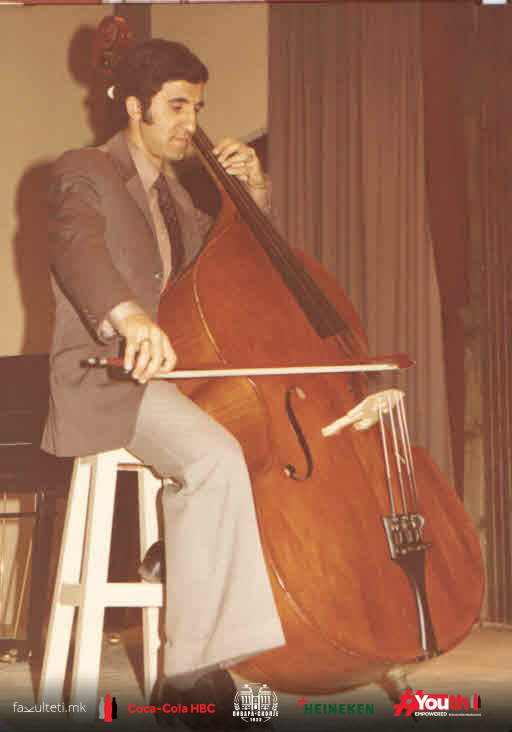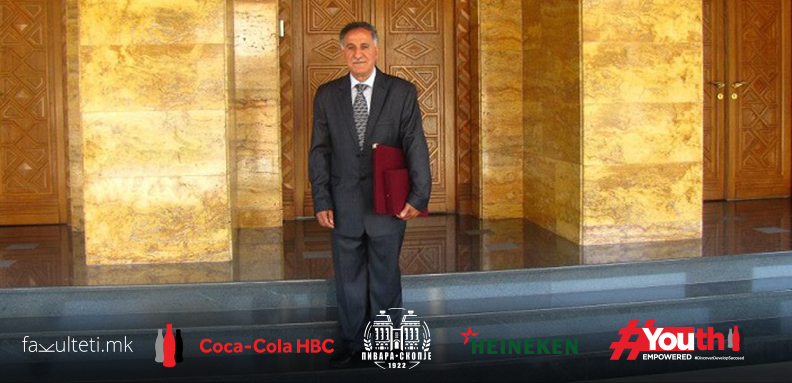
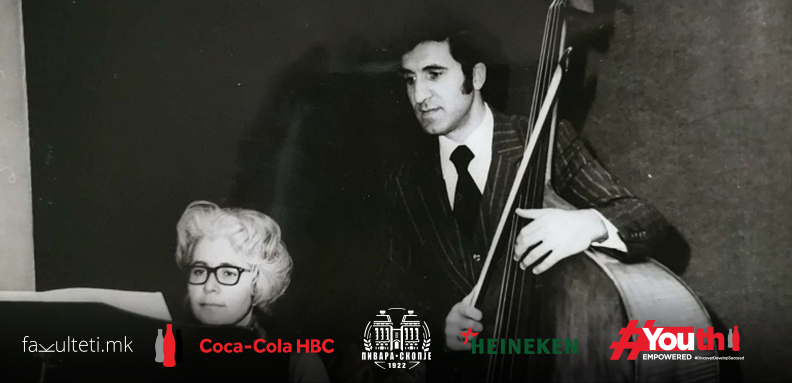
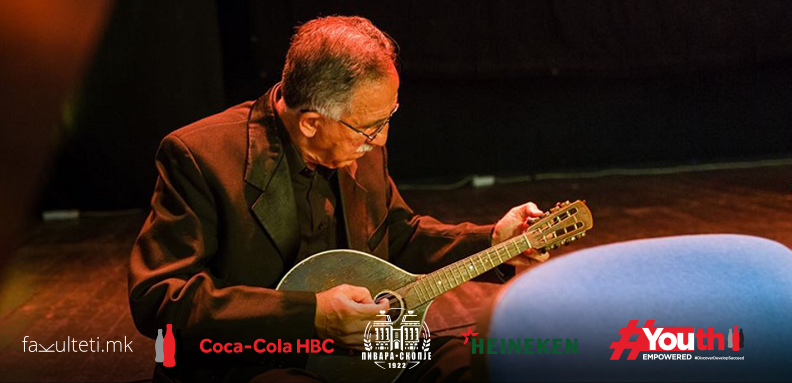
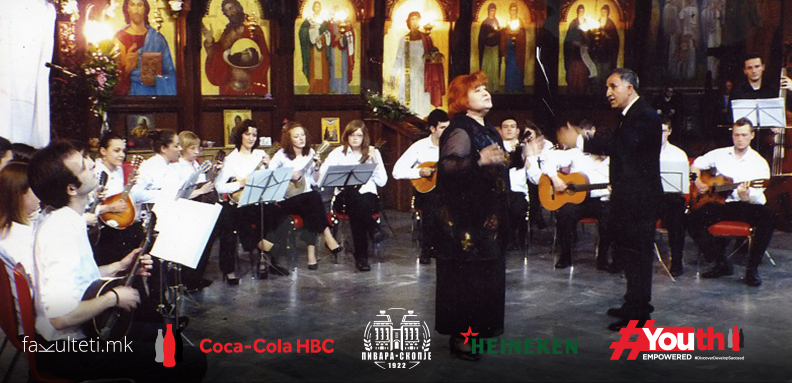
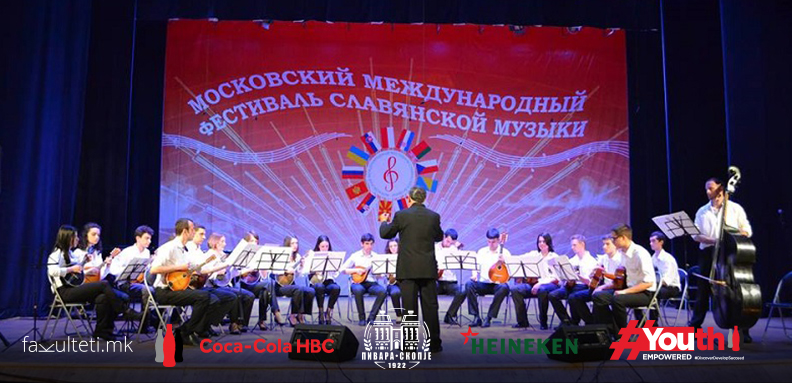
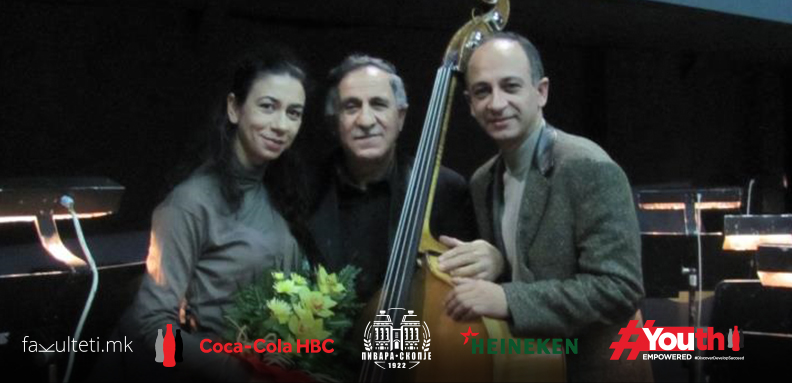
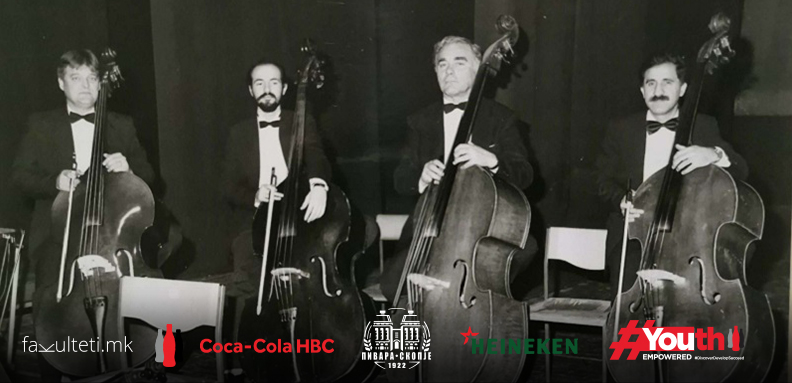
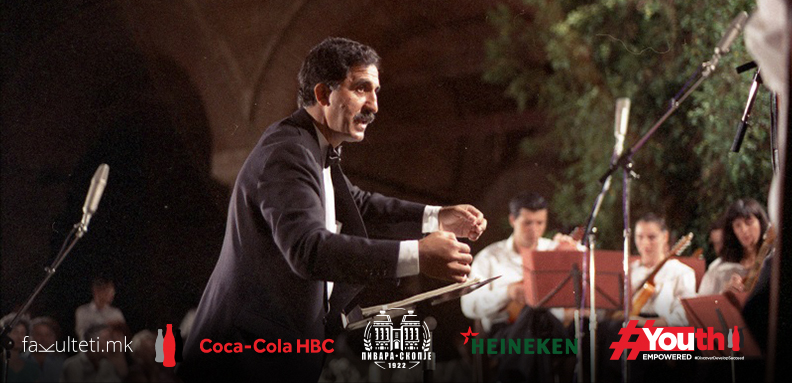
„ON THE LADDER OF SUCCESS“ WITH RAMADAN SHUKRI: YOUNG PEOPLE SHOULD CONTINUE THE TRADITION OF OUR MUSICAL HERITAGE
Their personal qualities brought them great professional success. Today they are members of management teams and run the most successful companies in the country. These are the stories of our successful people that we will publish in the section “On the Ladder of Success”. Fakulteti.mk and the Educational Center of “Pivara Skopje” through the “Skills for Success” training show you the way to the stars
He has dedicated his whole life to music. He grew up in a musical family and successfully raised his own musical family – his children are already well established musicians. We present our maestro Ramadan Shukri. He is a double bass player who was employed at the Macedonian Opera and Ballet for 44 years, until his retirement. But that is only a part of Shukri’s rich musical opus. His pedagogical role is just as important. He has been responsible for the musical shaping of thousands of young minds over the past five decades. In 1981 he founded the mandolin orchestra at YCC (Youth Cultural Center), where he worked until 2001. At the proposal of the City of Skopje in 2001 together with his son Erhan Shukri he founded the current mandolin orchestra “Skopje”. He runs the orchestra and wins many awards with it. So far he has educated thousands of students and mandolinists-members.
In addition to a series of awards with his orchestras, in 2014 Shukri became the winner of the “October 11th” award, which is our highest recognition in the field of arts, science and other activities.
– I was born in Resen, and I grew up in Bitola. I grew up in a musical family. My grandmother was a folklore dancer, and my father was a drummer and a singer. The main culprit for getting myself infected with music is my father. Macedonian music was most often heard in our home because my father sang it on various occasions, weddings and similar events. As a child I was most attracted to children’s and folk music – says Ramadan.
The double bass is his first love
His first love in music is the double bass. At the age of 15 Ramadan decided to study music by enrolling at the music school in Bitola, where besides the double bass, he also studied the piano at the very beginning.
– I started studying music at the age of fifteen when I enrolled at the music school in Bitola. I started with two instruments – the double bass and the piano. I took my first musical steps in the music school with professor Tome Janakievski on double bass and professor Jasminka Chakar on piano. The double bass is my primary instrument. It was a deficient instrument and at the suggestion of Professor Mihajlo Nikolovski, who was also the director of the music school in Bitola, I was the first student who enrolled for that instrument and I didn’t make a mistake at all.
I used to play percussion instruments.
Even if I wasn’t musically educated, I would still be involved in music
Ever since the first contact with music, Ramadan knew that this was what he wanted to do his all life. Dedicated to the instrument on a daily basis, he had neither the desire nor the time for other activities. He was simply determined to master the art of music as best as he could. He completed his secondary music education as an excellent student, and was equally successful at the Faculty of Music Arts. He believes that education helped him a lot in shaping himself as a professional musician, but even if he wasn’t musically educated, he would still be involved in music, given his great love for this art.
– I immediately realized that music will be my life commitment. I never had ambitions to be something else. Music is my life. I spent a lot of time on the instrument. For most of the day, three to four hours after class, I devoted myself to practicing the double bass and the piano. I was an excellent student in music secondary education. Also I graduated with honors from the Faculty of Music in Skopje.
My favorite vocational subjects were harmony, counterpoint and folklore. But pedagogy and psychology were also my favorites. However, even if I did not have a formal music education, I would be involved in music because I love it very much – says Ramadan.
Lucky circumstances brought me employment at the Macedonian Opera and Ballet
Even during his studying Ramadan had a desire to pass on his knowledge to younger students. Playing the instrument was in the foreground in that period, but he also wanted to be a pedagogue after graduating from the faculty. Given the fact that he played an instrument that was rarely studied in Macedonia at that time, he was offered the opportunity to be employed as a student in the Macedonian Opera and Ballet (MOB). This brought him certain stability and confidence that he would be able uninterruptedly to study, create and live in the capital city, and have a steady employment at the same time.
– While I was studying, my main ambition was to be a music artist and a pedagogue. I was lucky to be offered a job at the MOB, as a deficient staff. That enabled me financially to help my father and my family in Bitola. Of course, it also helped me to cover the expenses of living in Skopje. I was thinking of going to study in other cities such as Zagreb or Sarajevo, in order to improve my double bass skills. But crucial for my decision to stay in Skopje was the opening of the double bass department at the higher school of music (today’s Faculty of Music) where I got to study with the Professor Tomislav Trpkovik and also to work at the Macedonian Opera and Ballet.
Educate yourself, practice and play live
Ramadan has played music with some of the greatest names in Macedonia at that time. Suffice to say, he played with the National Orchestra of Macedonian Radio and Television (MRTV), where a number of our music legends performed. Since he has already accomplished a legendary status for himself as a musician, as well as a pedagogue, we had to ask him whether he has some special advice for the younger musicians.
– Besides my regular employment at the Macedonian Opera and Ballet, I didn’t do informal gigs. But, I played at the National Orchestra of MRTV with all our vocal and instrumental soloists, doyens of our Macedonian music, who were recorded and broadcasted on the national television and as permanent recordings on the Macedonian Radio. I have been working as a pedagogue for almost five decades. My advice to young people would be to work permanently, to practice on their instruments; to be educated musically so that they can pass on their experience and knowledge to the younger generations and constantly to be on the concert stages and to show what they know and possess. By doing that they will enable a continuance of experiences and tradition of our musical cultural wealth – Shukri concludes.
Prepared by : Nikola Petrovski







